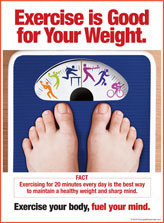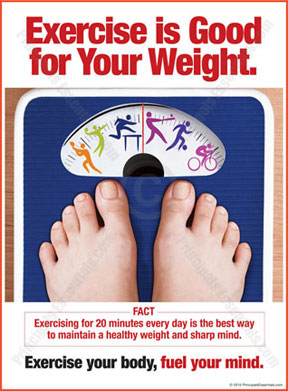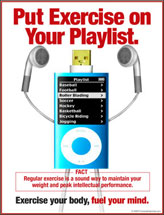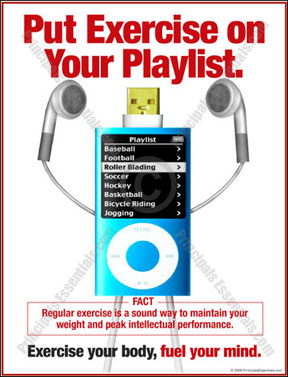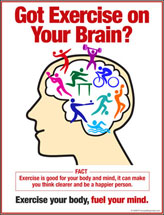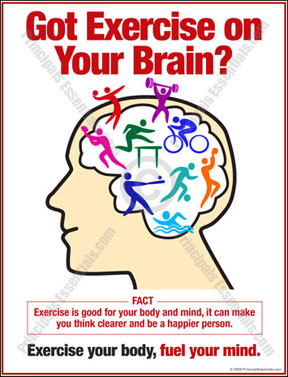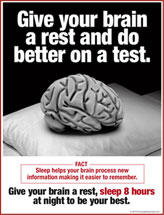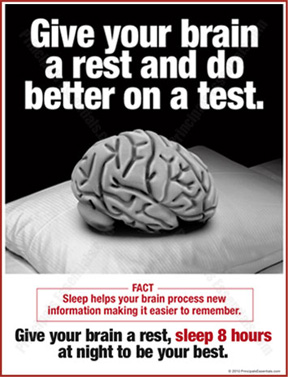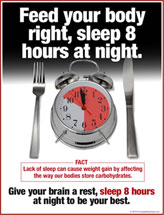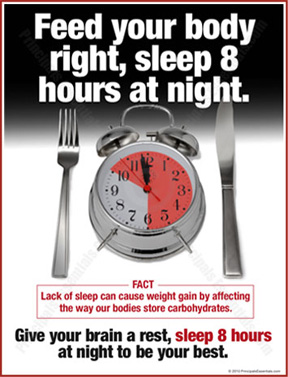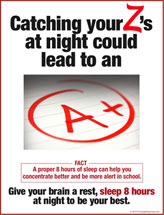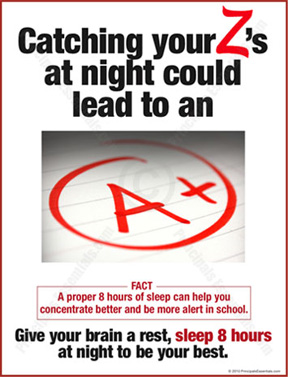School Nutrition: Food for Thought
The latest such study, published in the journal Child Development, followed 6,250 children from kindergarten through fifth grade and found that those who were obese throughout that period scored lower on math tests than non-obese children.
What's more, this pattern held even after the researchers took into account extenuating factors that can influence both body size and test scores, such as family income, race, the mother's education level and job status, and both parents' expectations for the child's performance in school.
The study took another step in this direction by looking at the children's social skills and any outward signs of anxiety, sadness, loneliness, or low self-esteem. Obese students generally displayed more emotional difficulties than their non-obese counterparts, and obese girls -- but not boys -- also displayed poorer social skills.
Social and emotional problems may not be the whole story, however. It's also possible that some of the well-documented health problems associated with childhood obesity -- such as asthma, diabetes, and sleep disorders -- may interfere with schoolwork or cause kids to miss class time.
Even more insidiously, excess weight or physical inactivity might sap a child's brainpower at the cellular level, by causing inflammation and other harmful biological processes, says Robert Siegel, M.D., director of the Center for Better Health and Nutrition, a pediatric obesity clinic at Cincinnati Children's Hospital.
"Obesity affects virtually every organ system in the body, including the brain," Siegel says. "It's an inflammatory state, and that may have effects on the developing mind."
Nationwide, an estimated 32% of American kids ages 2 to 19 are overweight, including 17% who are obese, according to the Centers for Disease Control.
Promote Proper Nutrition.1. Educate Students. Educate students on the importance of good nutrition by displaying the posters from our " Eat Smart " series. Positive eating patterns fostered during the teen years are very likely to last a lifetime.
2. Model Good Behavior. Have teachers eat with their students exhibiting a healthy attitude toward their food while modeling healthy eating habits. Proper nutrition among growing teens is crucial for building strong bodies, healthy minds and preventing obesity.
3. Encourage Exercise. Encourage teenagers to choose an activity they enjoy and to exercise for at least 30 to 60 minutes each day.
4. Encourage Breakfast. When students skip breakfast, their metabolic rate slows down and blood sugar drops. As a result, students become hungry and have less energy.
The Problem
• Inactive teens tend to feel more depressed, frustrated and are more likely to drop out.
• Overweight teens often grow into overweight adults with a higher risk of heart disease.
• Teens spend about 30 hours a week in front of a TV while eating high-fat snacks.
A Youth Risk Behavior Study found that obesity in school students is of particular concern. The survey indicated that among high school students, 13% are obese and several behaviors reported put them at risk for being overweight: low consumption of fruits and vegetables, and low levels of physical activity while 1/3 drank soda at least daily and watched TV for 3 or more hours daily with an additional 3 hours of video or computer time. The survey also reported that overweight/obesity of children 2 to 5 years by ethnicity. Native American young children have the highest rate of overweight/obesity at 43.9% followed by Hispanic children at 35.6, Asian/Pacific Islander at 32.9%, followed by white at 26.7% and African American at 23.5%.
The Solution
Communicate to Students. Talk to students about exercising regularly and highlight the problem with posters from our "Teen Exercise" Program.
Encourage Regular Exercise. Physical fitness is crucial for all teens. In combination with healthy eating, it's the best way to boost health and happiness, reduce weight and maintain peak intellectual performance.
Start After School Programs. Aerobic exercises are perfect for teens who like variety. Some possibilities include running, cycling, swimming, tennis, basketball, dancing, kick-boxing, hockey, soccer, jumping rope and handball.
In fact, tired students are more likely to become frustrated and drop out.
Most teenagers need about 8 to 9 hours of sleep each night. Getting the right amount of sleep is essential for students who want to do well on a test or play sports without fumbling. Unfortunately, many teenage students don't get enough sleep. Lack of sleep can cause an inability to concentrate, preventing a student from being their personal best.
For most students, the pressure to do well in school is more intense than when we were students, and it's harder to get by without studying hard. In addition, students also have other time demands, everything from sports, updating their social media pages to working a part-time job to save money for college.
Early school start times in some schools also might play a big role in sleep loss. Students who fall asleep after midnight may have to get up early for school, meaning that they might squeeze in 5 or 6 hours of sleep a night. A few hours of missed sleep each night may not seem like a big loss, but it can add up over a long period of time.
According to a National Sleep Foundation Sleep in America poll, more than 25% of high school students fall asleep in school, and experts have proven that lack of sleep can lead to poorer grades. Lack of sleep can also damage ones' ability to do and be their best.
Lack of sleep also is linked to emotional problems, such as feelings of sadness and depression. Sleep helps keep students happy and physically healthy by slowing the body's systems to re-energize us for everyday activities.
• 85% of teens reported NOT getting the recommended 8 hours of sleep on school nights
• 10% of children starting school suffer from sleep disturbances and these may lead to poor performance or behavioral difficulties.
• 73% of teens reported feeling depressed also report not getting enough sleep at night and being excessively sleepy during the day.
Communicate. Talk to students about the importance of sleep and highlight the facts with posters from our Healthy Sleep Series.
Call Home. Let parents know that their child appears to be exhibiting signs of exhaustion in school. Inform them that their child's lack of alertness could be effecting their academic performance.
Create Incentives. Give awards for improved student participation.
Increase Student Attendance. Students are more likely to be on time when school starts and less likely to be absent.
Happier Students. Students are in better moods and less likely to feel depressed.
Improved Performance. Students that get 8 hours or more of sleep are more alert, productive and more likely to get higher grades.



















